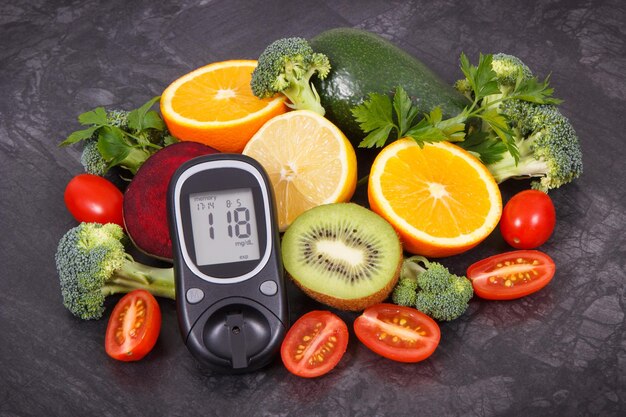Your Guide to What Fruit Can Diabetics Eat
What You Get:
Free Guide
Free, helpful information about Diabetes FAQ and related What Fruit Can Diabetics Eat topics.
Helpful Information
Get clear and easy-to-understand details about What Fruit Can Diabetics Eat topics and resources.
Personalized Offers
Answer a few optional questions to receive offers or information related to Diabetes FAQ. The survey is optional and not required to access your free guide.
Which Fruits Are Best for Diabetics? Discover Your Sweet Options
Living with diabetes doesn't mean you have to forego the pleasure of eating fruit. In fact, many fruits can be enjoyed without spiking blood sugar levels, so long as they are consumed in moderation. Knowing which fruits are friendlier for those managing diabetes is essential for crafting a diet that supports your health goals.
Fruits Diabetics Can Safely Enjoy
Berries: Blueberries, strawberries, and raspberries are excellent choices. They are packed with antioxidants, vitamins, and fiber while being relatively low in sugar. They can be a delicious and nutritious addition to your diet.
Cherries: Often overlooked, cherries are a great option thanks to their low glycemic index. Aim for fresh or frozen cherries without added sugars.
Peaches: Natural sources of vitamins A and C, peaches offer a sweet treat that won't wreak havoc on your blood sugar levels. Enjoy fresh peaches or add them to salads and smoothies.
Apples: Rich in fiber and vitamin C, apples have a manageable glycemic load. Remember to eat them with the peel for maximum nutritional benefits.
Pears: These tasty fruits are high in fiber and vitamin K. They can be consumed fresh or baked for a warm, comforting treat.
Oranges: While they do contain sugar, the fiber in whole oranges helps moderate blood sugar levels. Just avoid fruit juices, which remove the beneficial fiber.
Kiwis: Bursting with vitamin C, fiber, and potassium, kiwis are an underrated option that can be enjoyed year-round. Their unique taste is an added bonus.
Balancing Act: Portion Control and Timing
It's important to monitor portion sizes and consider the timing of when you eat fruit. Pairing fruit with a source of protein or healthy fat can help prevent rapid spikes in blood sugar. A small serving of nuts with your fruit of choice can make a perfectly balanced snack.
Exploring Broader Health and Financial Support
While understanding the right fruit choices for diabetes is integral to health management, there are various resources and programs available to support overall well-being, especially if financial constraints are a concern. Access to such resources can not only improve dietary decisions but also enhance life quality.
📋 Here’s a quick look at some potential avenues:
- Government Aid Programs for Food and Health: Explore nutritional assistance programs that can help ensure access to diabetes-friendly foods.
- Financial Support for Medical Expenses: Investigate health care support options to manage diabetes-related costs.
- Debt Relief Services: If financial stress is impacting your health management, consider consulting with organizations offering advice and relief options.
- Credit Counseling: Professional advice can help streamline finances and allow more focus on health priorities.
- Educational Scholarships: If pursuing education while managing diabetes, look for scholarships specifically designed for those living with the condition.
Understanding your options is key. A well-rounded approach to diabetes management encompasses dietary, health, and financial strategies. With the right resources, you can focus on improving your well-being and quality of life.
What You Get:
Free Diabetes FAQ Guide
Free, helpful information about What Fruit Can Diabetics Eat and related resources.

Helpful Information
Get clear, easy-to-understand details about What Fruit Can Diabetics Eat topics.

Optional Personalized Offers
Answer a few optional questions to see offers or information related to Diabetes FAQ. Participation is not required to get your free guide.


